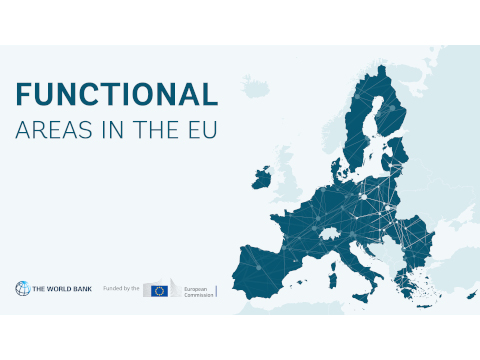12 new selected European functional areas for green transition and sustainable development
 Functional areas in the European Union is a EU-funded pilot project to strengthen the capacity to plan and finance investments and services on green transition and sustainable development. It has been launched on June 28 by the European Commission in cooperation with the World Bank.
Functional areas in the European Union is a EU-funded pilot project to strengthen the capacity to plan and finance investments and services on green transition and sustainable development. It has been launched on June 28 by the European Commission in cooperation with the World Bank.
The general priorities of the two institutions are to reduce poverty, social exclusion and to create sustainable economies. But often there is the challenge that development policies rarely match exactly with the administrative boundaries. That's why the EU Cohesion Policy identifies and supports functional areas and the formation of territorial cooperation.
The project targets 12 urban and non-urban functional areas from 7 European Union's member states: Czech Republic (Brno Metropolitan Area and Zagreb Urban Agglomeration); Greece (West Athens); Hungary (Balaton Lake); Poland (Kalisko-Ostrowska Agglomeration and Kracov City); Romania (Jiu Valley and Jiu Conurbation Functional Area, Caraș-Timiș Functional Area, Cluj Metropolitan Area, Oradea Metropolitan Area, West Ialomița Functional Area) and in Slovakia (Trencin).
The project will try to address 5 main goals:
-
support in addressing key development challenges;
-
support in preparing and implementing 2021-2027 cohesion policy;
-
disseminate the key lessons learned, as well as tools and approaches developed within the project to other functional areas;
-
develop a toolkit that other functional areas can use to strengthen their functional area approaches;
-
organise knowledge exchange events in order to transfer findings and workable solutions to other interested functional areas in the EU.
Interested functional areas of the EU can join the "FAs Network" to enhance their synergies, learn from each other and improve the different European territorial approaches. Also, citizens from one of the selected areas can give their feedback (it's enough to have lived or worked in the member states' territories for a minimum of 6 months)-